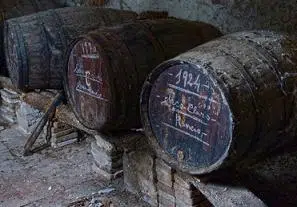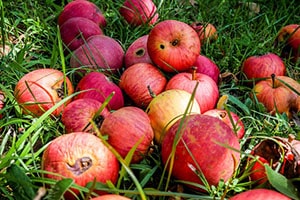 The etymological root of the term rancio takes us to the Latin word rancĭdus . The concept is used with reference to food with a high fat content whose organoleptic properties are altered over time .
The etymological root of the term rancio takes us to the Latin word rancĭdus . The concept is used with reference to food with a high fat content whose organoleptic properties are altered over time .
A rancid product , in this way, acquires an intense aroma and a very strong flavor that are not pleasant . Rancidity is generated by the hydrolysis or oxidation of some of the components.
A food becomes rancid due to changes in oils and fats when exposed to certain environmental conditions ( temperature , humidity, etc.). In the case of the hydrolytic process, triglycerides are broken down into glycerin and fatty acids. The oxidative process, meanwhile, results in the generation of ketones, aldehydes and other substances.
It's important to keep in mind that when a food goes stale, it doesn't just change its flavor. It also loses vitamins and can even acquire a degree of toxicity due to chemical alterations.
Experts in the food and health sector provide us with various recommendations to prevent products from becoming rancid. Some of them are the following:
* In the case of cooking oils, for example, it is advisable to store them in a cupboard where sunlight does not reach so that they remain fresh. In addition, it should not be near heat sources such as the oven or stove;
* cheese should be wrapped in plastic film and kept in the refrigerator;
* whole wheat flour and nuts should not be stored in the pantry, but also in the refrigerator;
* polyunsaturated oils, particularly flaxseed and fish oil, should be stored in the refrigerator.
A rancid wine , on the other hand, is one that was preserved and allowed to age for a prolonged period exposed to the sun. Unlike what happens with rancid fatty foods, wine does not undergo negative changes or go bad.
 Exposure to sunlight for at least a year causes the wine to age quickly. Temperature variations also affect the characteristics of rancid wines, which have a high alcohol content.
Exposure to sunlight for at least a year causes the wine to age quickly. Temperature variations also affect the characteristics of rancid wines, which have a high alcohol content.
The adjective rancid, finally, is used symbolically to describe what has a long tradition or, in a derogatory way, what is typical of past times and not very suitable or successful for the present . For example: "I don't understand how a young person can have stale thoughts regarding these issues," "I grew up in a town with stale customs," "The candidate's rancid speech generated a lot of criticism."
In this context, it is appropriate to mention the character Antonio Recio Matamoros , from the Spanish series La que se cerca , a man of very questionable ideas who is referred to by his neighbors by the nickname "el rancio." This is someone who supports all the most despicable movements, such as racism , machismo and homophobia. His wife, Berta, does not share his way of thinking one hundred percent, but since she is his main ally, when neighbors talk about the couple they usually call them "los rancio."
Without a doubt, ideas that threaten the freedom of any living being "smell bad" seem to come from remote times in which human beings were far from having thoroughly explored their behavior, their relationship with their environment. Of course, we should not justify any of these ways of thinking (or "not thinking") simply due to a lack of experience, since there are many children who express an open-mindedness worth highlighting, but much less so after so many thousands of years. on the face of the earth.
